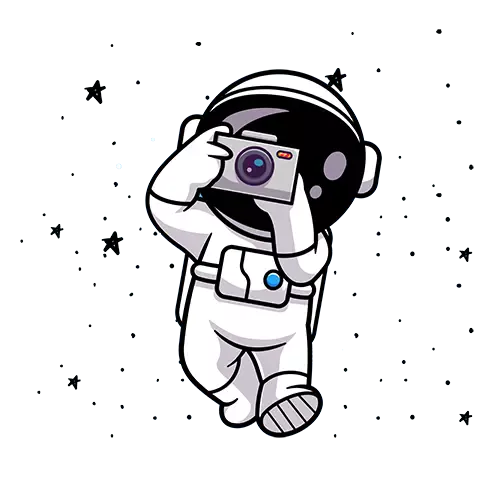
In the ever-evolving landscape of digital marketing, the ability to convert leads into loyal customers is a pivotal aspect of success. Marketing funnels, often referred to as sales funnels, are the cornerstone of this conversion process. Understanding, refining, and optimizing these funnels can make a substantial difference in your business's bottom line. In this comprehensive guide, we'll delve into the world of marketing funnels optimization, exploring its definition, benefits, strategies, tools, case studies, challenges, and future trends.
Introduction
Definition of Marketing Funnels
At its core, a marketing funnel is a model that represents the journey a potential customer takes from the initial awareness stage to becoming a paying customer and, ideally, a loyal advocate of your brand. It's aptly named a "funnel" because, as potential customers progress through each stage, the number of prospects naturally narrows down, similar to how liquid flows through a funnel.
Importance of Marketing Funnels in Digital Marketing
Marketing funnels are integral to digital marketing because they provide a structured approach to nurturing leads, guiding them through the decision-making process, and ultimately driving conversions. Without a well-optimized funnel, businesses risk losing potential customers who might otherwise have converted with the right nurturing and persuasion.
Purpose of Marketing Funnels Optimization
Marketing funnels optimization aims to improve the efficiency and effectiveness of each stage in the funnel, ensuring that more leads are successfully converted into customers. This process involves analyzing data, refining content, and implementing strategies that enhance the customer journey.
Understanding the Marketing Funnel
Before diving into optimization strategies, let's break down the stages of the marketing funnel:
Stages of the Marketing Funnel
1. Awareness: This is the top of the funnel (TOFU), where potential customers first become aware of your brand, product, or service. They might find you through search engines, social media, or word of mouth.
2. Interest: At this stage, potential customers are showing a deeper interest in what you offer. They may engage with your content, sign up for newsletters, or follow your social media accounts.
3. Consideration: In the consideration stage, leads are actively evaluating your product or service. They might compare it to competitors and seek more information.
4. Conversion: The conversion stage (BOFU) is where the magic happens. Leads become paying customers, completing a purchase, signing up for a subscription, or taking another desired action.
5. Loyalty: After conversion, the focus shifts to retaining customers. This involves providing excellent customer service, encouraging repeat purchases, and building brand loyalty.
6. Advocacy: In the final stage, satisfied customers become advocates for your brand, spreading the word to friends, family, and their network. Word-of-mouth marketing can be a powerful asset.
Customer Journey Mapping
Customer journey mapping is a crucial tool for understanding and optimizing the marketing funnel. It involves creating visual representations of the steps a customer takes, from their initial contact with your brand to post-purchase interactions. Mapping the customer journey helps identify pain points, opportunities for improvement, and areas where optimization strategies can be applied.
Benefits of Marketing Funnels Optimization
Optimizing your marketing funnels offers a wide array of benefits, ultimately leading to improved business performance:
Improved Conversion Rates
The most immediate and tangible benefit of funnel optimization is an increase in conversion rates. By streamlining the customer journey, reducing friction, and addressing pain points, more leads progress smoothly through the funnel and become paying customers.
Enhanced Customer Experience
A well-optimized marketing funnel is designed with the customer's experience in mind. When potential customers have a positive and frictionless experience, they are more likely to convert and become loyal customers. This positive experience can also lead to word-of-mouth referrals.
Increased Revenue
As conversion rates rise and more leads move through the funnel, the overall revenue generated by your marketing efforts will increase. This boost in revenue can be significant, making funnel optimization a high-impact strategy for businesses.
Better Targeting and Personalization
Funnel optimization often involves segmenting your audience and delivering targeted content and offers to specific groups. This personalization enhances the relevance of your marketing efforts, increasing the likelihood of conversion.
Strategies for Marketing Funnels Optimization
Now that we understand the importance and benefits of funnel optimization, let's explore the strategies you can implement to make it a reality:
Data Analysis and Tracking
One of the foundations of optimization is data analysis. To understand where leads are dropping off or encountering obstacles, you need to track their interactions with your brand. Tools like Google Analytics can provide valuable insights into user behavior, helping you identify areas that need improvement.
Customer Segmentation
Not all leads are the same, and treating them as such can lead to missed opportunities. Customer segmentation involves dividing your audience into distinct groups based on demographics, behavior, or preferences. By tailoring your messaging to these segments, you can increase relevance and engagement.
Content Optimization
The content you create and share throughout the funnel plays a pivotal role in guiding leads toward conversion. This includes blog posts, videos, emails, and more. Content optimization involves creating high-quality, informative, and engaging content that addresses the needs and pain points of your audience at each stage of the funnel.
A/B Testing and Experimentation
A/B testing involves comparing two versions of a webpage, email, or advertisement to determine which one performs better. Through systematic experimentation, you can fine-tune elements like headlines, images, calls to action, and layouts to optimize conversion rates.
Email Marketing Optimization
Email marketing remains a powerful tool in the world of digital marketing, particularly for nurturing leads and encouraging conversions. Optimization in this context includes crafting compelling subject lines, personalizing emails, and segmenting your email list for targeted communication.
Landing Page Optimization
Your landing pages are critical points in the funnel where leads make decisions. Optimizing landing pages involves improving their design, content, and calls to action to minimize bounce rates and encourage conversions.
Tools and Technologies for Marketing Funnels Optimization
Effective funnel optimization often requires the use of specialized tools and technologies:
Customer Relationship Management (CRM) Software
CRM software helps businesses manage and analyze customer interactions throughout the funnel. It provides a centralized database for customer data, enabling personalized communication and tracking customer journeys.
Marketing Automation Platforms
Marketing automation platforms streamline repetitive marketing tasks, such as sending emails, segmenting audiences, and tracking customer behavior. These platforms can save time and increase the efficiency of your funnel optimization efforts.
Analytics and Reporting Tools
Robust analytics and reporting tools, such as Google Analytics and Adobe Analytics, provide essential data insights for optimizing your funnel. They allow you to track user behavior, measure key performance indicators, and identify areas for improvement.
A/B Testing Tools
Dedicated A/B testing tools, such as Optimizely and VWO, facilitate experimentation and optimization of various elements within your funnel. These tools help you make data-driven decisions to improve conversion rates.
Common Challenges in Marketing Funnels Optimization
While funnel optimization can bring significant benefits, it also presents its own set of challenges:
Data Privacy and Compliance
With the increasing focus on data privacy regulations like GDPR and CCPA, businesses must navigate complex compliance requirements. Collecting and using customer data while adhering to these regulations can be a challenging task.
Balancing Automation and Personalization
Marketing automation is a powerful tool, but it should be used judiciously. Striking the right balance between automation and personalization is crucial to avoid coming across as impersonal or spammy in your communications.
Resource Constraints
Smaller businesses may have limited resources, both in terms of budget and personnel. Finding cost-effective ways to optimize marketing funnels can be a constant challenge.
Addressing these challenges often requires a combination of legal expertise, careful planning, and creative problem-solving.
Future Trends in Marketing Funnels Optimization
As technology continues to advance and consumer behavior evolves, the field of marketing funnels optimization is set to change in several ways:
AI and Machine Learning Integration
Artificial intelligence (AI) and machine learning algorithms are increasingly being used to analyze vast amounts of data and make real-time recommendations. In the context of funnel optimization, AI can automate the personalization of content, predict customer behavior, and identify optimization opportunities.
Voice Search and Conversational Marketing
The rise of voice-activated devices like smart speakers and voice search on mobile devices presents new opportunities for funnel optimization. Optimizing content for voice search and implementing conversational marketing strategies can help businesses engage with customers in more natural and conversational ways.
Cross-Channel Integration
Consumers interact with brands across multiple channels, including websites, social media, email, and mobile apps. Optimizing funnels across these channels and ensuring a seamless and consistent customer experience is a growing trend. Cross-channel integration can provide a holistic view of the customer journey and enable more effective funnel optimization.
Conclusion
In the ever-evolving landscape of digital marketing, the optimization of marketing funnels remains a critical strategy for businesses aiming to convert leads into loyal customers. Understanding the stages of the marketing funnel, its benefits, and the strategies for optimization is essential. Leveraging tools and technologies, learning from real-world case studies, and addressing common challenges can help businesses maximize the potential of their marketing funnels.
As we look to the future, the integration of AI and machine learning, the rise of voice search, and the importance of cross-channel integration will shape the direction of funnel optimization. By staying informed and adapting to these trends, businesses can continue to improve their marketing funnels and drive greater success in the digital marketplace. Funnel optimization is not a one-time effort but an ongoing journey towards higher conversion rates, improved customer experiences, and sustained business growth.


